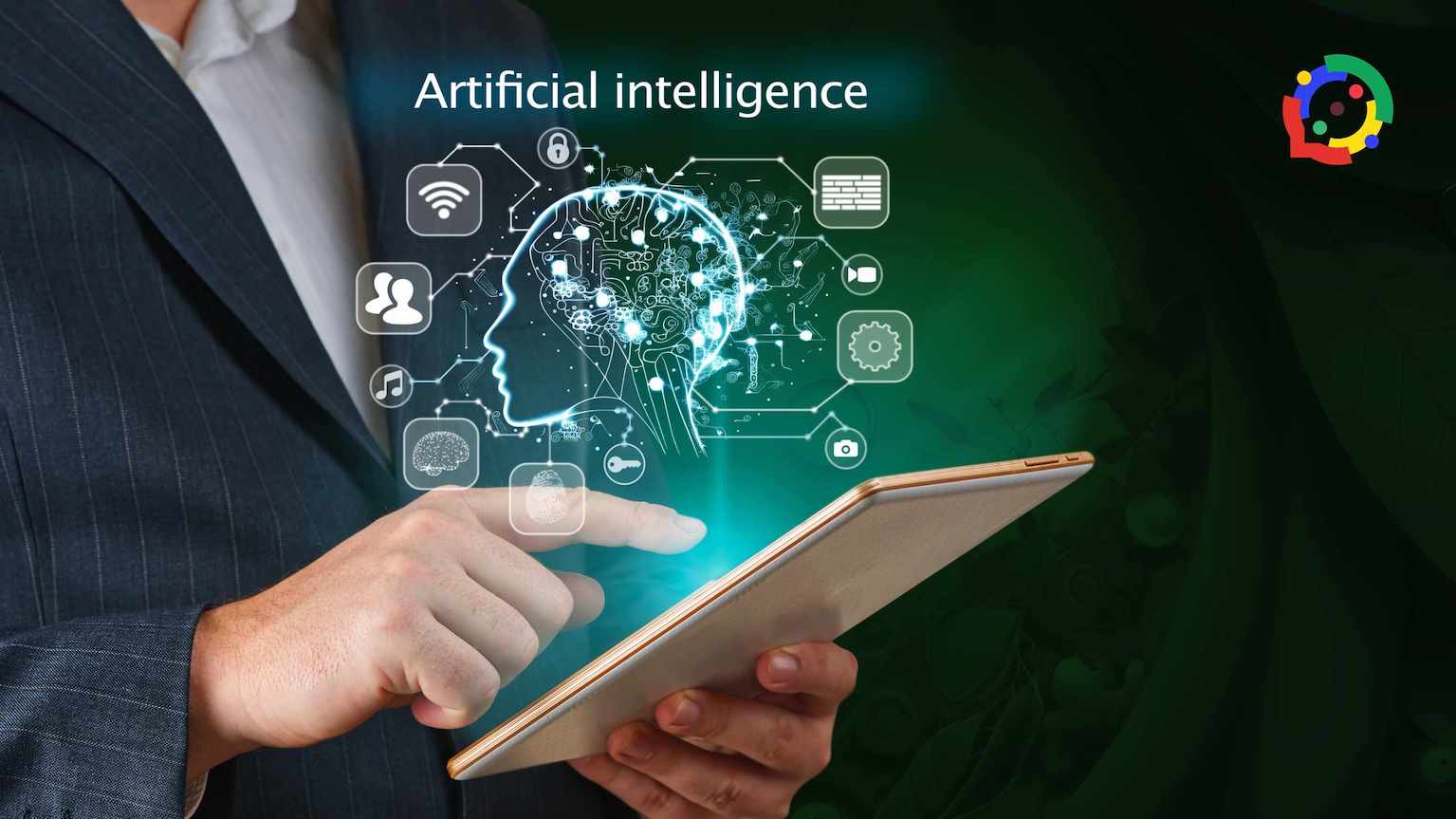As we navigate our daily lives, AI has stealthily embedded itself in our routines. It powers the recommendations on our favorite streaming platforms, refines our online shopping experiences, and even assists us in understanding complex queries. AI is the invisible hand guiding our digital interactions, enhancing them in ways we often take for granted.
Mobile applications, the lifeline of our connected world, have felt the profound impact of AI. These pocket-sized wonders have evolved from static tools to dynamic companions, thanks to the integration of AI technologies.

In this article, we delve into the phenomenon of "The Rise of AI in Mobile Applications: Trends and Future Prospects," with the following subtopics:
- MobileGPT: The best AI On Mobile Application
- Why Does It Matter?
- Historical Context: The Evolution of AI in Mobile Apps
- Current Trends in AI-Powered Mobile Apps
- Future Prospects: Evolving AI in Mobile Applications
MobileGPT: The best AI On Mobile Application
Introducing MobileGPT, a groundbreaking AI mobile application that's transforming the WhatsApp experience by seamlessly integrating the power of the GPT-3.5-turbo and GPT-4 OpenAI models directly into WhatsApp conversations. MobileGPT takes your WhatsApp chats to a whole new level, offering a wide array of added functionalities that enhance your daily communication and productivity.
Key Features of MobileGPT:
- AI Documents and Images Generation 📄🖼️:
MobileGPT empowers you to effortlessly create AI-generated documents and images right within your WhatsApp chats. Whether you need a quick report, a graphical representation, or any other content, MobileGPT has you covered. - Personal Learning Assistance 📚✏️:
MobileGPT serves as your personal AI tutor, providing instant answers, explanations, and guidance for your educational or informational queries. - Talk to PDF Documents and Websites 🗂️🌐:
MobileGPT can converse with PDF documents and websites, extracting valuable information, summarizing content, and helping you quickly find what you need without leaving your WhatsApp conversation. - Create WhatsApp Reminders and Notes 📅📝: Never forget important tasks or appointments again. MobileGPT enables you to create WhatsApp reminders and notes, ensuring you stay organized and on top of your schedule.
- Create WhatsApp Notes 📌🗒️: MobileGPT simplifies note-taking by allowing you to create and save notes directly within WhatsApp. Capture thoughts, ideas, or important information effortlessly.
- Long and Short Research Reports 📊📋: MobileGPT can assist in generating both short and comprehensive research reports, saving you time and effort.
MobileGPT is an AI-powered companion within WhatsApp, ready to assist with a wide range of tasks and inquiries. Whether you're a student, professional, or just someone looking to supercharge your WhatsApp conversations, MobileGPT brings the future of AI to your fingertips.
Experience the AI revolution in WhatsApp with MobileGPT, and unlock new possibilities in your daily communication and productivity.
Don't miss out on this game-changing AI application. Get ready to chat, learn, and create like never before with MobileGPT on WhatsApp! Click here to join MobileGPT: https://wa.me/message/TRQTFU2TZDBGP1
Why Does It Matter?
The relevance of AI in mobile applications cannot be overstated. It has transformed mobile applications from mere tools into intelligent and responsive companions. Here's a glimpse of why AI matters in this context:
Personalization: AI enables mobile apps to understand user preferences and behaviors, offering tailored content, recommendations, and experiences. Whether it's a news aggregator, a music streaming app, or a fitness tracker, personalization enhances user engagement and satisfaction.
Automation: AI-powered mobile apps automate repetitive tasks, saving users time and effort. From chatbots that handle customer queries to virtual assistants that schedule appointments, automation streamlines user interactions.
Predictive Analytics: AI analyzes user data to predict future actions and needs. E-commerce apps, for example, can recommend products based on past purchases, enhancing the shopping experience.
Enhanced User Experience: AI-driven features like voice recognition, facial recognition, and augmented reality (AR) provide users with intuitive and immersive experiences.
Real-time Insights: Mobile apps with AI can collect and analyze data in real-time, helping businesses make informed decisions and adapt quickly to changing circumstances.
Historical Context: The Evolution of AI in Mobile Apps
The integration of AI into mobile applications didn't happen overnight. It's the result of a gradual evolution that dates back to the early days of smartphones. Here's a brief historical context:
- Early AI Assistants: Mobile AI made its debut with virtual assistants like Apple's Siri and Google Assistant, which could answer questions and perform basic tasks.
- App Personalization: Mobile apps began using AI to personalize content and recommendations, improving user engagement.
- Machine Learning: As machine learning algorithms improved, mobile apps started offering more advanced features, such as predictive text, image recognition, and language translation.
- AI Chatbots: AI-powered chatbots revolutionized customer support and engagement in mobile apps, providing instant responses and automating customer interactions.
- Emerging Trends: Today, AI in mobile apps encompasses a wide range of trends, including chatbots, voice assistants, AI-generated content, and AI-driven user analytics.
As we move forward, AI continues to be a driving force in mobile app development, pushing the boundaries of what these apps can achieve. In the following sections, we'll explore the current trends and future prospects of AI in mobile applications.
Current Trends in AI-Powered Mobile Apps
The landscape of mobile applications is evolving at a breakneck pace, and at the heart of this transformation lies Artificial Intelligence (AI). AI-driven mobile apps are not just becoming more prevalent but also more sophisticated, enhancing user experiences in remarkable ways. Let's explore some of the current trends in AI for mobile applications:

1. Chatbots for Seamless Interactions 🤖:
Example: WhatsApp's integration of chatbots for business interactions. Lets look at MobileGPT for example; AI chatbots have become the face of personalized and instant communication within mobile apps. They serve as virtual assistants, helping users with inquiries, tasks, and even entertainment. One standout example is MobileGPT, an AI mobile application that integrates with WhatsApp to provide a wide range of functionalities, from generating AI documents to offering personal learning assistance.
Statistics: According to a report by Grand View Research, the global chatbot market is expected to reach $1.25 billion by 2025, with mobile apps being a significant driving force.
2. Voice Recognition and Virtual Assistants 🗣️:
Example: Apple's Siri, Google Assistant, and Amazon's Alexa.
Statistics: A survey by Voicebot.ai found that the adoption of voice assistants in the U.S. grew from 22.9% in 2019 to 26.2% in 2020, indicating a rising trend of voice-driven mobile interactions.
3. Image Recognition for Enhanced Functionality 📸:
Example: Pinterest's visual search feature, which allows users to search for items using images.
Statistics: The global image recognition market is projected to reach $78.8 billion by 2025, as per a report by MarketsandMarkets.
4. Hyper-Personalization for Tailored Experiences 🧵:
Example: Netflix's personalized content recommendations based on user viewing history.
Statistics: A study by SmarterHQ found that 72% of consumers expect brands to personalize their communications, and AI is a key enabler of this personalization.
5. AI-Generated Content and Recommendations 📝:
Example: Spotify's AI-generated playlists and music recommendations.
Statistics: According to a survey by Accenture, 91% of consumers are more likely to shop with brands that provide relevant offers and recommendations.
6. Predictive Analytics for User Insights 📊:
Example: LinkedIn's "People You May Know" feature, which uses AI to suggest connections.
Statistics: In a survey by NewVantage Partners, 91.6% of respondents reported that their firms were increasing their investments in AI and big data analytics.
These trends illustrate how AI has become an integral part of mobile app development, catering to user needs and preferences more effectively than ever before. The data and examples also underscore the growing demand and adoption of AI-driven features in mobile apps.
Future Prospects: Evolving AI in Mobile Applications
As we stand on the cusp of a new technological era, the future of AI in mobile applications is poised to be nothing short of revolutionary. With each passing year, AI technologies are becoming more sophisticated, accessible, and integral to our daily lives. Here's a glimpse of what the future holds for AI in mobile apps:
→ Advanced Personalization and Contextual Intelligence 🌐:
Prediction: AI-driven apps will continue to refine their ability to understand user preferences and context, offering hyper-personalized experiences that anticipate user needs and adapt in real-time.
→ Augmented Reality (AR) and Virtual Reality (VR) 🕶️🌌:
Emerging Technologies: AR and VR will play a significant role in the future of mobile apps. AR apps will enhance real-world experiences with digital overlays, while VR apps will provide immersive environments for various purposes, from gaming to education.
Applications: Imagine trying on clothes virtually before making an online purchase, exploring distant destinations through VR travel apps, or receiving AR-based navigation assistance in real-time.

→ Natural Language Understanding and Multimodal Interaction 🗣️🤖:
Prediction: Mobile apps will become even more conversational, with AI understanding and responding to spoken and written language. Multimodal interfaces, combining text, voice, and gestures, will be the norm.
→ Healthcare and Wellness 🏥💪:
Prediction: AI-powered mobile health apps will become indispensable for monitoring health, providing personalized recommendations, and even assisting in remote medical consultations.
→ Autonomous AI Agents and Assistants 🤝:
Prediction: AI agents and assistants will take on more autonomous roles, managing tasks, scheduling, and even making decisions on behalf of users, all while learning and adapting to individual preferences.
→ Ethical and Regulatory Developments 📜🔍:
Prediction: Ethical considerations and regulatory frameworks will evolve to keep pace with AI advancements, ensuring responsible AI usage and safeguarding user rights. As AI continues to weave itself into the fabric of mobile applications, the possibilities are boundless. The convergence of AI with emerging technologies like AR and VR opens up entirely new dimensions for app development. It's a future where your smartphone isn't just a device; it's a portal to immersive, personalized, and intelligent experiences.
Therefore, the journey of AI in mobile applications has only just begun. What we've witnessed so far is merely the tip of the iceberg. With innovation driving the industry forward, we can look forward to a future where mobile apps powered by AI redefine the way we interact, work, and play.









